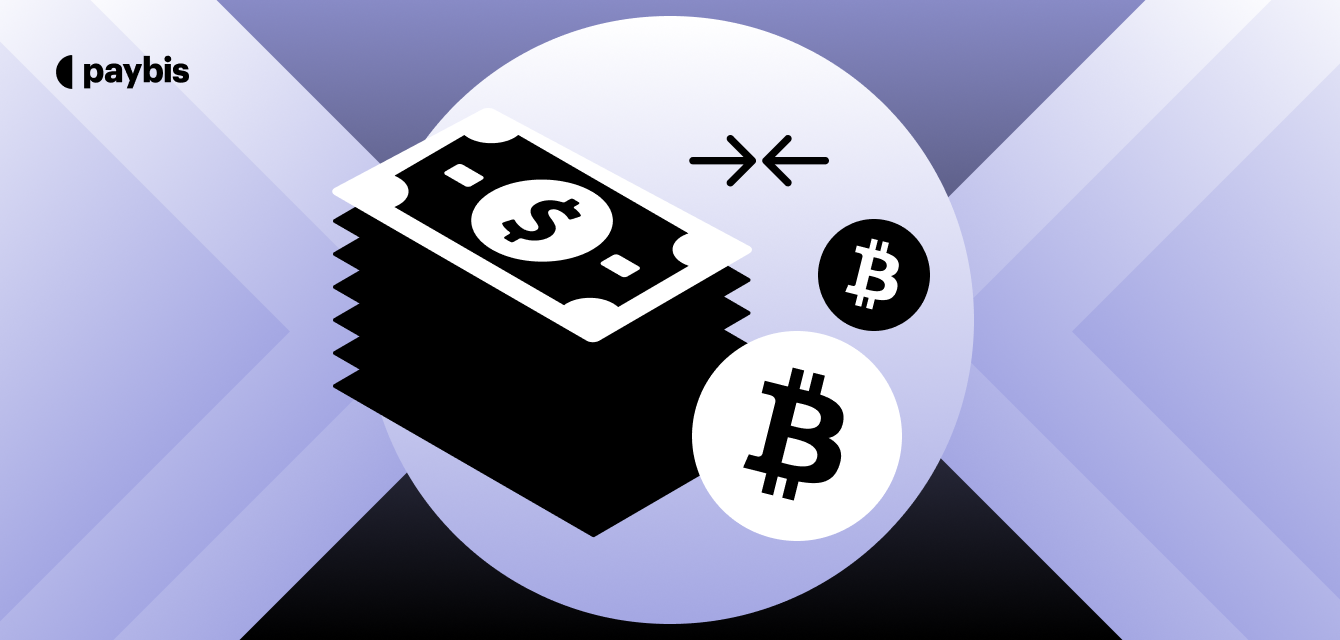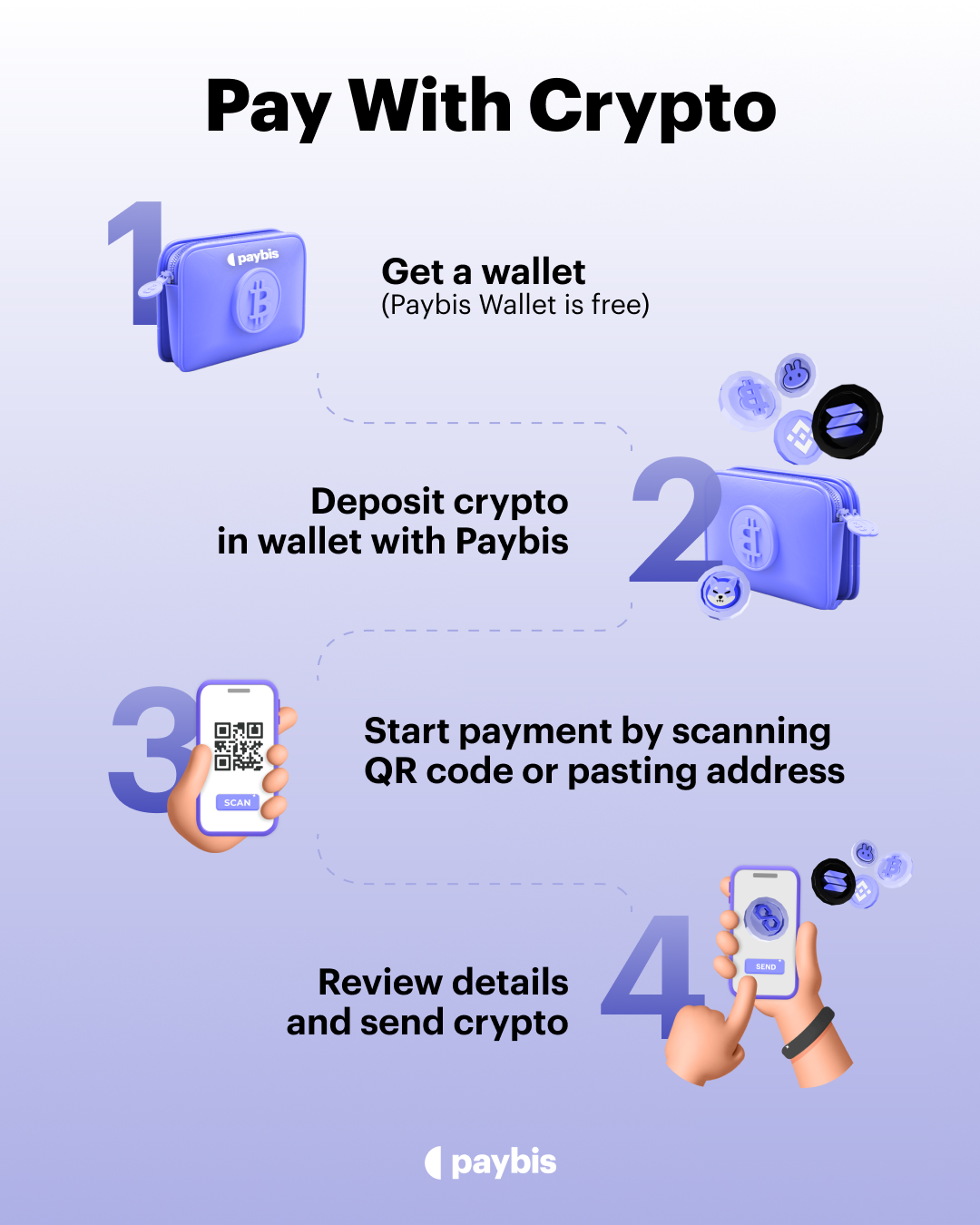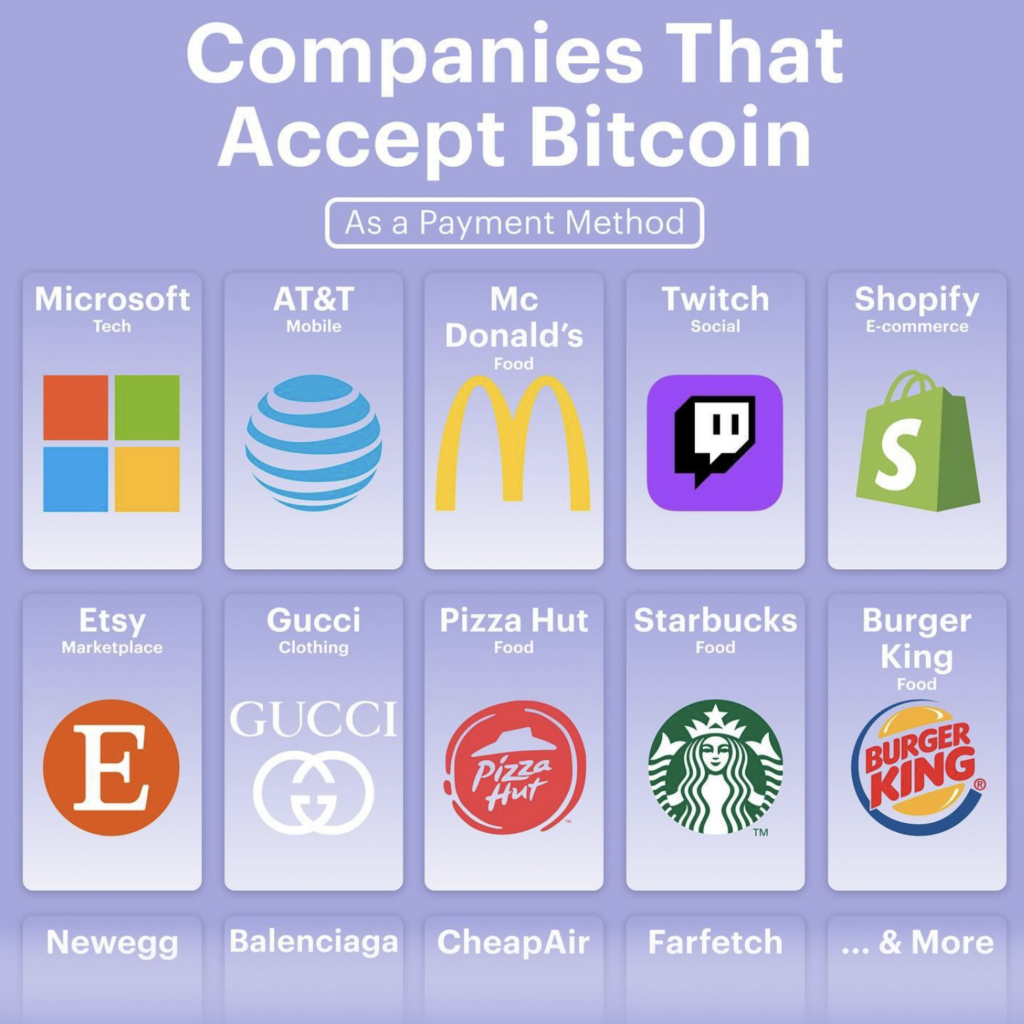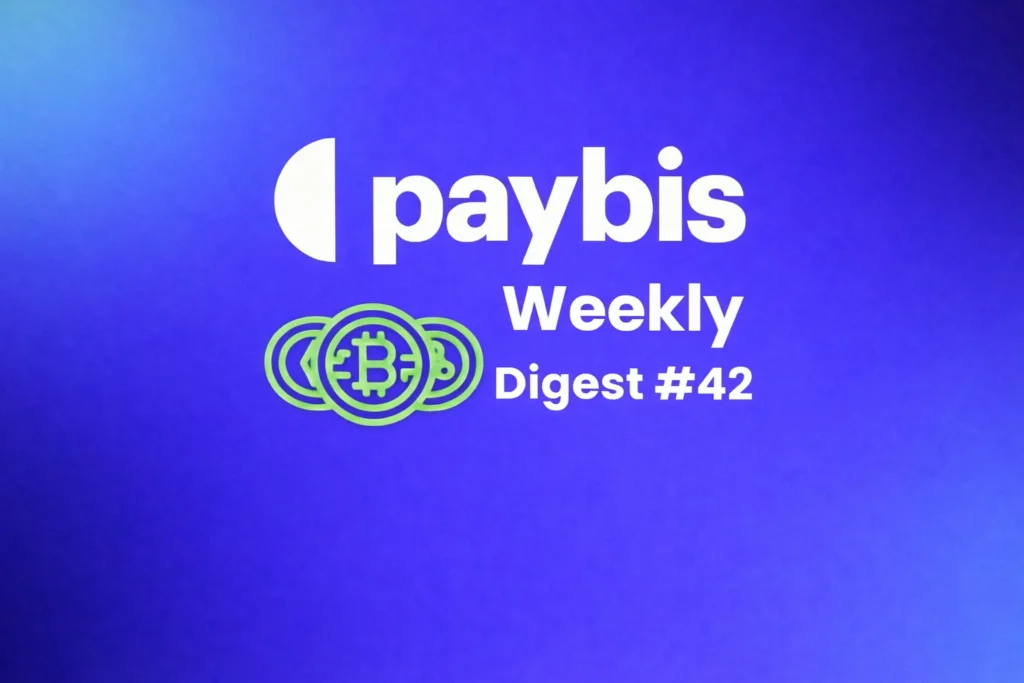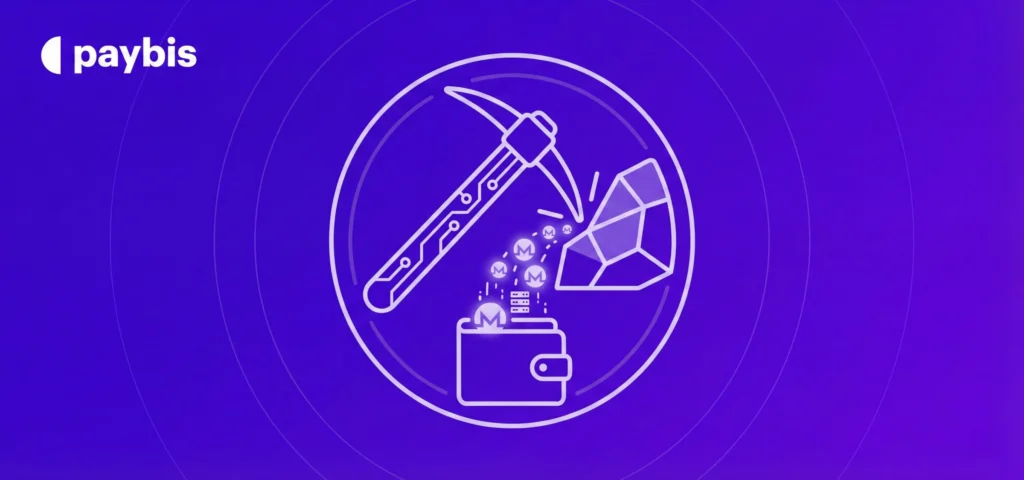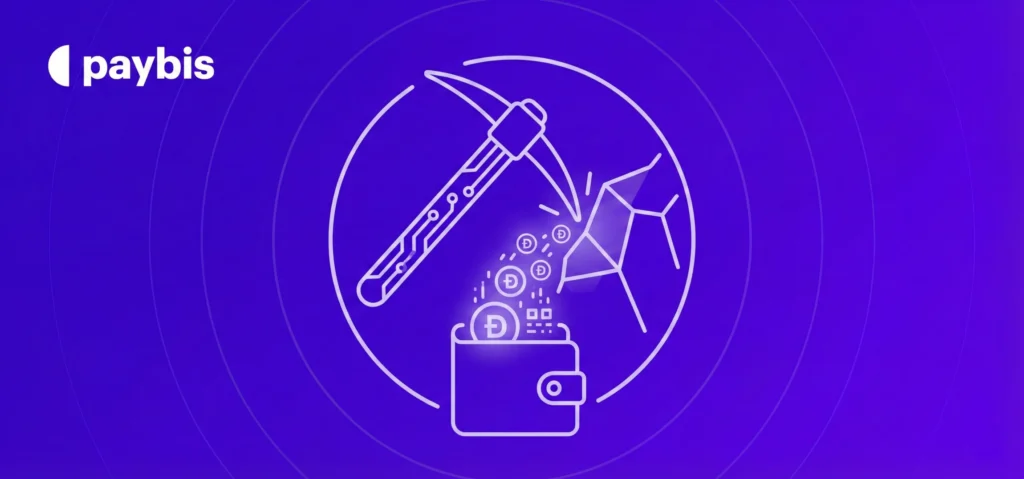How To Pay With Bitcoin
Bitcoin materialized in 2009, promising a new way to transact beyond traditional currencies. Initially viewed with skepticism, the landscape has transformed today.
Bitcoin facilitates direct peer-to-peer transactions, eliminating the need for traditional intermediaries. Aside from being a payment option, Bitcoin is advantageous in terms of simplicity, cost-effectiveness, security, and speed — particularly for cross-border payments.
Bitcoin payments enable a modern, safe, and adaptable solution to managing finances in this ever-changing digital landscape.
This article will provide information on how to pay someone with Bitcoin, how to pay for something with Bitcoin and more.
Table of contents
Understanding Bitcoin Payments
Unlike traditional money, Bitcoin is a decentralized digital currency that operates independently of banks or governments. It is a peer-to-peer system that lets users to conduct direct transactions without the use of intermediaries.
To pay with Bitcoin, you’ll need a crypto wallet, which is comparable to a bank account but for cryptocurrencies. When creating a Bitcoin wallet, you can choose between software, hardware, mobile, and online wallets. Each provides a different level of security and convenience.
Once you’ve decided on a wallet type, setting up an account is usually as simple as filling out a form and securing it with a password or PIN. The wallet generates two distinct keys: a public key for receiving Bitcoin and a private key for transaction authorization.
After you’ve set up your Bitcoin wallet, you’ll be given an address—a string of characters that looks like an account number. This is the address where you will send and receive Bitcoin. Bitcoin can now be purchased from cryptocurrency exchanges or received as payment for goods or services.
Understanding the fundamentals of Bitcoin—its decentralized nature, the relevance of wallets, and the acquisition process—lays the groundwork for using it as a payment mechanism.
How To Pay With Bitcoin?
To pay using cryptocurrency, you’ll need a wallet to safely store your digital currency. Here’s a step-by-step process on how to pay with crypto from your wallet:
- Get a wallet: Get a cryptocurrency wallet for your needs. Paybis Wallet supports Bitcoin and several other cryptocurrencies.
- Deposit crypto in your wallet: Purchase cryptocurrency from exchanges such as Paybis, accept it as payment, or transfer it from another wallet.
- Initiate payment: Scan the QR code or copy and paste the wallet address provided by the business to make an online payment.
- Sending Crypto:
- Enter the payment amount in your wallet and choose the “Send” option.
- Review the details such as transaction fees and blockchain network.
- Confirm the transaction.
- Transaction Confirmation: The transaction is processed once it has been confirmed. The payment may take a few minutes to appear in the recipient’s wallet. The time taken depends on the network on which the transaction is made.
Find out who can buy Bitcoin here.
Specific Methods on How to Pay with Crypto
Wondering how to pay with crypto? Here are 3 easy ways.
How to Pay with Bitcoin Online
- Select Bitcoin as your payment option during online checkout.
- Enter the required details and confirm the transaction.
- Scan the provided QR code or copy-paste the wallet address to send the payment from your digital wallet.
- Once verified, the transaction completes in minutes.
How to Pay with Bitcoin on Cash App and Other Platforms
- You can pay with Bitcoin on Cash App and similar platforms.
- Link your digital wallet to Cash App or similar services.
- Follow their instructions to buy or sell Bitcoin.
- Use the app’s interface to pay for goods or services using Bitcoin.
How to Pay with Bitcoin Anonymously
- For increased privacy, ensure the wallet isn’t linked to personal information.
- Utilize mixing services that shuffle your Bitcoin with others to obfuscate transaction trails.
- Use peer-to-peer exchanges or decentralized platforms offering increased anonymity.
- Note that you are obligated to comply with all local laws. We do not recommend you perform anything that is deemed illegal in your region.
Useful links
- What is a Transaction Fee
- How to Spend Bitcoin
- How to use Bitcoin on Amazon
- What is KYC
- How to Research Cryptocurrency
Where Can You Pay with Cryptocurrency?
Some countries around the world are exploring the possibility of making Bitcoin and other cryptocurrencies legal tenders. This means you can make a payment with cryptocurrency or buy with cryptocurrency anywhere in the country just like cash.
Countries Accepting Crypto as a Legal Tender
Since the initial Bitcoin rise in 2017, nations and institutions throughout the world have been paying close attention.
President Nayib Bukele of El Salvador, a small Latin American country, declared they are adopting BTC as the legal tender in May 2021. As a result, El Salvador holds the distinction of being the first country to accept Bitcoin as legal tender.
By April 2022, the Central African Republic (CAR) had also adopted BTC as a legal tender. Despite its abundant natural resources, CAR remains one of the world’s poorest countries. President Faustin-Archange Touadera expressed optimism that legalizing Bitcoin would lead to future prosperity.
Further, in the previous year, a tourist-oriented island in Honduras formed a special economic zone with BTC as legal tender.
Currently, El Salvador and the Central African Republic (CAR) are the only two countries in the world where Bitcoin is used as a legal tender. Nonetheless, speculations are that many others will follow suit.
Websites & Companies Accepting Crypto Payments
- Microsoft: Accepts Bitcoin for subscriptions and services globally since 2017.
- AT&T: Became the first telecom operator to allow crypto-based services in 2019.
- Burger King: Enabled Bitcoin payments at 40 franchise locations in 2020.
- Namecheap: Facilitates Bitcoin payments for domain registration.
- Travala: Allows booking hotels, flights, etc., with crypto payment options.
- Purse.io: Sells electronic goods and accepts Bitcoin payments.
- Gucci: Announced acceptance of Bitcoin for luxury items via Bitpay.
- Starbucks: Partnered with Bakkt for Bitcoin payments in 2021.
Real Estate, Car Dealerships, and Restaurants Accepting Bitcoin
- Real Estate Maximus, Glen Oaks Escrow, Brookliv, Kuper Sotheby’s International Realty, and others accept Bitcoin for property transactions.
- Prestige Cars Kent, Carriage Nissan, and BitCars allow Bitcoin payments for cars.
- Pizza Hut, Starbucks, and Tim Hortons have incorporated Bitcoin payments at select outlets.
These locations and companies are among the many throughout the world that are accepting cryptocurrencies, enabling payments, and expanding Bitcoin acceptance across numerous industries.
Pros and Cons of Paying with Cryptocurrency
Cryptocurrencies offer several advantages, including decentralization, decreased transaction fees, increased security and privacy, accessibility, and possible investment opportunities.
They do, however, bring issues like volatility, limited adoption, fraud risk, environmental concerns, and regulatory ambiguity.
Pros |
Cons |
| Decentralization: Provides independence from centralized financial systems and government control. | Volatility: Cryptocurrencies are highly volatile, leading to price fluctuations. |
| Lower Transaction Fees: Cryptocurrency transactions often have lower fees compared to traditional banking fees. | Limited Acceptance: Still not widely accepted as a standard payment method in many places. |
| Security and Privacy: Offers enhanced security with cryptographic techniques. | Risk of Fraud and Scams: Transactions are irreversible, making it challenging to recover funds in case of fraud. |
| Accessibility: Allows global access to financial services, especially in underbanked regions. | Environmental Impact: Criticized for its energy consumption in mining and validation processes. |
| Potential Investment: Many see cryptocurrencies as an investment opportunity, potentially yielding high returns. | Regulatory Uncertainty: Lack of clear regulations and oversight by governments creates uncertainty. |
Costs Associated with Bitcoin Payments
Transaction fees are the charges for processing and confirming transactions on the Bitcoin network. They are levied on Bitcoin transactions for a variety of reasons, including incentivizing miners, network security, and priority confirmation.
Bitcoin transaction fees might vary depending on a variety of circumstances:
- Network Congestion: During peak times, when the network experiences higher traffic or more transactions, fees might increase due to increased demand for processing transactions.
- Transaction Speed: Users can choose between different fee options based on how quickly they want their transaction to be processed. Higher fees can result in faster transaction confirmations.
- Blockchain Type: Different cryptocurrencies and blockchain networks have varying fee structures and mechanisms for processing transactions.
- Wallet or Exchange Fees: Some wallets or exchanges may also charge additional fees for handling transactions, deposits, or withdrawals.
These fees serve as incentives for network miners and validators to confirm and validate transactions. They cover the costs of maintaining the blockchain infrastructure and ensuring the network’s security and efficiency.
Alternative Payment Options with Bitcoin
- Payment Services: Some payment services accept Bitcoin payments indirectly using platforms such as PayPal. However, direct Bitcoin transfers via PayPal are restricted. Users can buy Bitcoin through these sites, but owing to legislative or operational limits, they may not be able to utilize Bitcoin directly for transactions.
- Third-Party Services: Certain third-party services allow users to make Bitcoin payments without the need for a personal wallet. These services function as middlemen, allowing users to make Bitcoin payments without personally owning or keeping a wallet. Users use Bitcoin to pay for accounts or services, and the platform handles payment conversion and processing.
However, as compared to direct wallet-to-wallet transactions, these alternatives may involve greater costs or constraints.
Using third-party services implies entrusting funds to an external company, which may pose security and control problems.
FAQs
Which cryptocurrencies can I use to make purchases?
Bitcoin, Ethereum, and others can be used for purchases. It is crucial to ensure that the chosen merchant supports the specific cryptocurrency you intend to use.
How do I execute a payment using Bitcoin?
Executing a payment with Bitcoin involves acquiring a wallet, depositing crypto, choosing a payment method (online or offline), and confirming the transaction. It’s a straightforward yet meticulous process.
Are there locations where Bitcoin transactions are not welcomed?
Yes, some countries and regions may have restrictions or lack infrastructure for Bitcoin transactions. It is advisable to check local regulations and merchant acceptance before attempting transactions.
Final Thoughts
Bitcoin and other cryptocurrencies are altering financial landscapes. Their use is growing across industries, providing quick and safe transactions. Nonetheless, difficulties including volatility and costs exist, as do regulatory concerns.
Understanding Bitcoin payments is critical, from setting up wallets to locating accepted platforms. Bitcoin’s rise from obscurity to practicality represents a seismic upheaval in financial services. However, cautious exploration is still required.
Follow the Paybis blog to stay abreast of the latest developments surrounding Bitcoin and cryptocurrencies.
Disclaimer: Don’t invest unless you’re prepared to lose all the money you invest. This is a high‑risk investment and you should not expect to be protected if something goes wrong. Take 2 mins to learn more at: https://go.payb.is/FCA-Info
